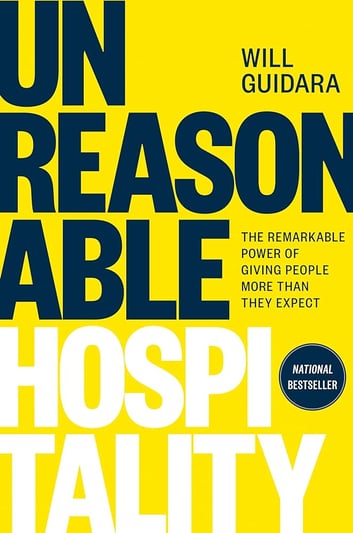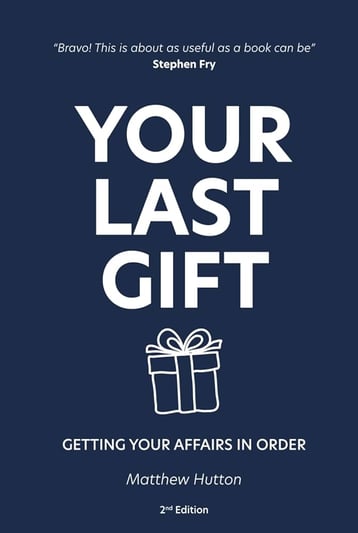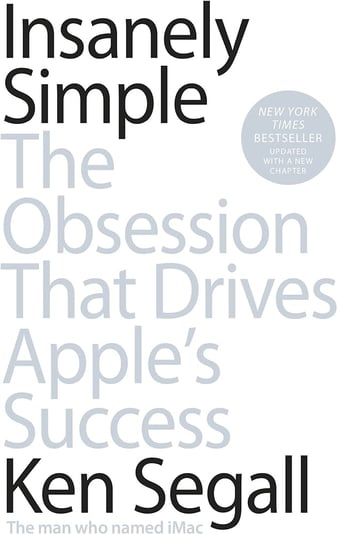I'm excited to start a new tradition—or perhaps I'm rekindling an old one, it's hard to say. Regardless, once or twice a year, I'll be suggesting a short list of books or long-form articles for growth-minded financial planners.
Here are my recommendations for Summer 2024:

Unreasonable Hospitality: The Remarkable Power of Giving People More Than They Expect
by Will Guidara
This book was originally recommended to me by my friend Dennis Hall of Yellowtail. Much like hospitality, financial planning is a people-centred business. If you are looking for inspiration and ideas on how to elevate your client experience to a completely new level, I couldn't recommend this book enough. Will Guidara tells a heartwarming story of how he and his team transformed Eleven Madison Park, a struggling two-star brasserie, into not just a four-star restaurant, but the best restaurant in the world! Here are some of the lessons that really resonated with me:
Be Unreasonable: "...no one who ever changed the game did so by being reasonable. Serena Williams, Walt Disney, Steve Jobs, Martin Scorsese, Prince. Look across every discipline, in every arena—sports, entertainment, design, technology, finance—you need to be unreasonable to see a world that doesn’t yet exist."
Nobility in Service: "Serving other human beings can feel demeaning, unless you first stop and acknowledge the importance of the work and the impact you can have on others when you’re doing it. "The moment you start to pursue service through the lens of hospitality, you understand there’s nobility in it."
Make the Charitable Assumption: "When someone is being difficult, it’s human nature to decide they no longer deserve your best service. But another approach is to think, 'Maybe the person is being dismissive because their spouse asked for a divorce or because a loved one is ill. "Maybe this person needs more love and more hospitality than anyone else in the room.'"
Choose Conflicting Goals: For us at Timeline, this validates our goals of having low cost, high tech, and high touch! Or when it comes to Platform 3.0, being both a deeply integrated ecosystem of tools as well as open architecture!

Your Lasting Gift: Getting Your Affairs in Order
by Mathew Hutton
"Death is more universal than life; everyone dies, but not everyone lives." - Andrew Sachs, English actor (1930-2016)
Death is a morbid subject, which explains why most of us avoid thinking or talking about it, let alone planning for it. However, meaningful financial planning is incomplete without a conversation about not just what clients want out of life, but also what they want to happen after they die.
The central idea of this book is that one of the most important gifts you can give your loved ones is clear guidance on what you’d like to happen when you’re no longer around. I can't think of anyone more qualified to write this book than Mathew Hutton, a former private client solicitor and tax adviser turned vicar and ordained minister in the Church of England, who also serves as the Deputy Lieutenant of the County of Norfolk.
This is a book recommendation for clients as much as for planners. If you want a gift to help cut through inertia regarding legacy planning or just need some practical, easy-to-read content on a difficult subject, I highly recommend this book as a gift for your clients. It is incredibly well written, balancing practical guidance with interesting stories, anecdotes, and illustrations. It is concise, spanning less than 80 pages, with useful checklists and reference resources in the appendix.
Watch out for my Adviser 3.0 podcast interview with Mathew.
"When you’ve told someone that you’ve left them a legacy, the only decent thing to do is to die at once!" - Samuel Butler, English novelist and critic (1835-1902)

Insanely Simple: The Obsession That Drives Apple's Success
by Ken Segall
This one is a bit of a wild card for financial planners. But given how incredibly complex things get in financial services, and the temptation (some might say the necessity) to allow this complexity to fester in our businesses and our interactions with clients, it deserves a read.
Plus, it's packed with insider stories about Steve Jobs! I don't typically read more than one book about an individual but I make exceptions for two people—Steve Jobs and Jack Bogle 😄
Here’s an excerpt:
"In a world where Complexity abounds, those who stand up for Simplicity will always stand apart."
Think Brutal: No need to be mean, just brutally honest—and avoid the partial truths while you’re at it. Ask those you interact with to do the same. People will be more focused, more positive, and more productive when they don’t have to guess what you’re thinking. You’ll avoid wasting valuable time and energy later.
Think Small: Swear allegiance to the concept of small groups of smart people. Remember it well when new project groups are formed. Small groups of smart people deliver better results, higher efficiency, and improved morale.
Think Minimal: Be mindful of the fact that every time you attempt to communicate more than one thing, you’re splintering the attention of those you’re talking to. Remember that a sea of choices is no choice at all. The more you can minimize your proposition, the more attractive it will be.
Think Phrasal: Words are powerful, but more words are not more powerful—they’re often just confusing. No matter who your audience is, it’s more effective to communicate as people do naturally. In simple sentences. Using simple words.
Think Human: Unless you’re in the business of sterilizing things, business is no place to be sterile. Have the boldness to look beyond numbers and spreadsheets and allow your heart to have a say in the matter. Bear in mind that the intangibles are every bit as real as the metrics—oftentimes even more important.
Think Skeptic: Expect the first reaction of others to be negative. The forces of Complexity will inevitably tell you that something can’t be done, even if the truth is that your request simply requires extra effort. Don’t allow the discouragement of others to force compromise upon your ideas. Push. If you can’t get satisfaction with one person or vendor, move to another.
“Simple can be harder than complex. You have to work hard to get your thinking clean to make it simple. But it’s worth it in the end, because once you get there, you can move mountains.” Steve Jobs
Happy reading! 📖